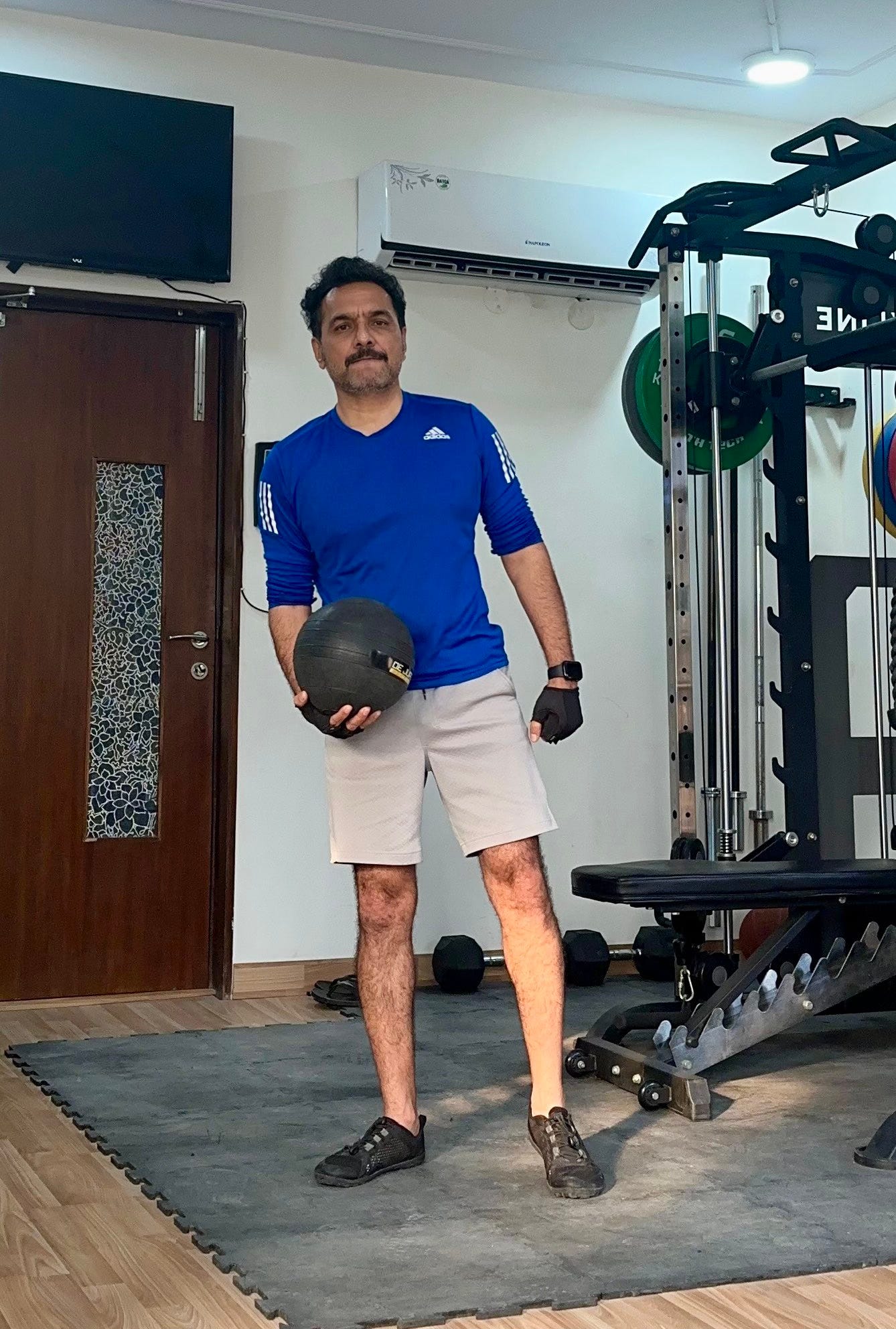Use Stress to Build You Up, Not Break You Down
Issue #151
Welcome to this edition of our newsletter, where we explore how to harness stress as a powerful tool for personal growth and resilience. Let's dive into the strategies that can transform stress from a foe into a friend.
👉 Change Your Stress Mindset
Your mindset is the lens through which you perceive the world. It shapes your actions and responses, often becoming a self-fulfilling prophecy. By viewing stress as an asset, you can:
Enhance performance and adaptability.
Engage in active problem-solving.
Recognise and reinforce your resilience.
Build long-term health and fitness.
Approach new challenges with confidence.
Conversely, viewing stress as harmful can lead to negative outcomes, such as decreased resilience and avoidance of growth opportunities.
👉 Actionable Item: Do a Stress Audit
Start shifting your mindset with this exercise:
List Stressful Events: Write down challenging events from the past year or two.
Reflect on Learnings: Note the skills and wisdom gained from these experiences.
Identify Resources: List the resources that helped you overcome these challenges.
Use this reflection to draw strength from past experiences and prepare for future challenges.
👉 Develop Productive Coping Strategies
Avoiding stress can create a vicious cycle, but embracing it with productive coping mechanisms can improve your health and resilience.
👉 Actionable Item: Practice 5-Minute Actions
Take tiny, strategic steps to address stressors. Choose a small action you can take today to move in the right direction. For example, if stressed about eating habits, spend five minutes planning a healthy grocery order.
Each productive coping choice strengthens your resilience, turning stress into a catalyst for growth.
👉 Learn How to Turn On and Off Productive Stress
Being able to activate and deactivate your stress response as needed is crucial for "stress flexibility." This involves:
Activating your sympathetic nervous system for action.
Engaging your parasympathetic nervous system for relaxation.
Maintaining a calm baseline in between.
👉 Actionable Item: Practice Coping Flexibility
Develop a toolbox of coping strategies to manage different stressors. Here are some methods:
Plan Ahead: Organise your schedule around valued activities
Planning ahead is a proactive approach to stress management. By organizing your schedule around activities that you value, you can create a sense of purpose and control in your life. This strategy involves:
Prioritising tasks: Identify what's most important and schedule these activities first.
Time-blocking: Allocate specific time slots for different activities to ensure a balanced day.
Setting realistic goals: Break larger tasks into smaller, manageable steps.
Building in buffer time: Allow for unexpected events or delays to reduce time pressure.
Mind/Body Scan: Spend 5-10 minutes noticing physical sensations and thoughts
The mind/body scan is a mindfulness technique that helps you become more aware of your physical and mental state. To practice this:
Find a quiet, comfortable space
Close your eyes and focus on your breath
Slowly scan your body from head to toe, noticing any sensations
Observe your thoughts without judgment
If your mind wanders, gently bring your attention back to your body
This practice can help you identify areas of tension or stress in your body and mind, allowing you to address them more effectively.
Crucial Conversations: Address difficult issues with important people
Crucial conversations involve discussing sensitive topics with people who matter to you. To have effective crucial conversations:
Prepare: Think about what you want to achieve from the conversation
Create a safe environment: Choose an appropriate time and place
Start with facts: Begin the conversation with objective observations
Listen actively: Pay attention to the other person's perspective
Seek mutual understanding: Work together to find solutions
Addressing difficult issues can reduce long-term stress by resolving conflicts and improving relationships.
Self-Compassion: Be kind to yourself during tough times
Self-compassion involves treating yourself with the same kindness and understanding that you would offer a good friend. To practice self-compassion:
Recognise common humanity: Remember that everyone experiences difficulties
Use positive self-talk: Speak to yourself in a supportive, encouraging manner
Practice self-care: Engage in activities that nurture your physical and emotional well-being
Being kind to yourself can help reduce stress by counteracting negative self-criticism and promoting emotional resilience.
Identify Bright Spots: Focus on what is going well
Focusing on positive aspects of your life can help shift your perspective and reduce stress. To identify bright spots:
Keep a gratitude journal: Write down three things you're grateful for each day
Celebrate small wins: Acknowledge and appreciate your daily accomplishments
Practice positive reframing: Look for opportunities or lessons in challenging situations
By cultivating a positive mindset, you can build resilience and better cope with stressors.
Just Breathe: Use techniques like "box breathing" to calm or energise
Breathing exercises are powerful tools for managing stress in the moment. Box breathing, for example, involves:
Inhale for a count of 4
Hold your breath for a count of 4
Exhale for a count of 4
Hold your breath for a count of 4
Repeat the cycle
This technique can help calm your nervous system and reduce stress quickly.
Seek Support: Find allies, whether friends, family, or professionals
Building a support network is crucial for managing stress effectively. To seek support:
Identify trusted individuals: Think about who you can turn to in times of need
Be open about your struggles: Share your feelings and concerns with others
Join support groups: Connect with people facing similar challenges
Consider professional help: Consult a therapist or counsellor for additional support
Seeking help is a sign of strength, not weakness. Having a strong support system can provide emotional comfort, practical assistance, and new perspectives on your stressors.
By assessing your life honestly, you can identify areas within your control, preparing you to face life's challenges with confidence.Embrace these strategies to turn stress into a powerful ally in your journey toward growth and resilience.
In case you missed previous issue on Transformative Habits of Financially Successful People, here is the gist:
1. Independence from Social Approval: Wealthy individuals prioritize their own goals over societal expectations, focusing on personal values rather than trying to impress others with material possessions.
2. Paying Themselves First: A critical habit among the wealthy is the practice of saving and investing a portion of their income before addressing immediate expenses, fostering a proactive approach to financial planning.
3. Preparation for Unforeseen Challenges: Wealthy individuals maintain substantial emergency funds, which alleviates financial stress and enables them to seize opportunities without fear of immediate financial repercussions.
4. Strategic Use of Debt: They view debt as a tool for investment rather than a burden, differentiating between good debt (for assets) and bad debt (for liabilities), and employing it strategically to enhance wealth.
5. Value of Continuous Learning and Time Management: Wealthy individuals invest in their personal development and prioritize time management, delegating lower-value tasks to focus on activities that drive their long-term financial goals.
9 Transformative Habits of Financially Successful People
I have had the opportunity of knowing quiet a few wealthy people and also creating some wealth for myself. And this is what I have observed which differentiates them from others.
Before you go!
Did you like this issue? If yes, consider dropping your love on the socials and sharing it with anyone who you think will benefit from it.
See you on the thirty ninth Sunday of 2024. Take care!



